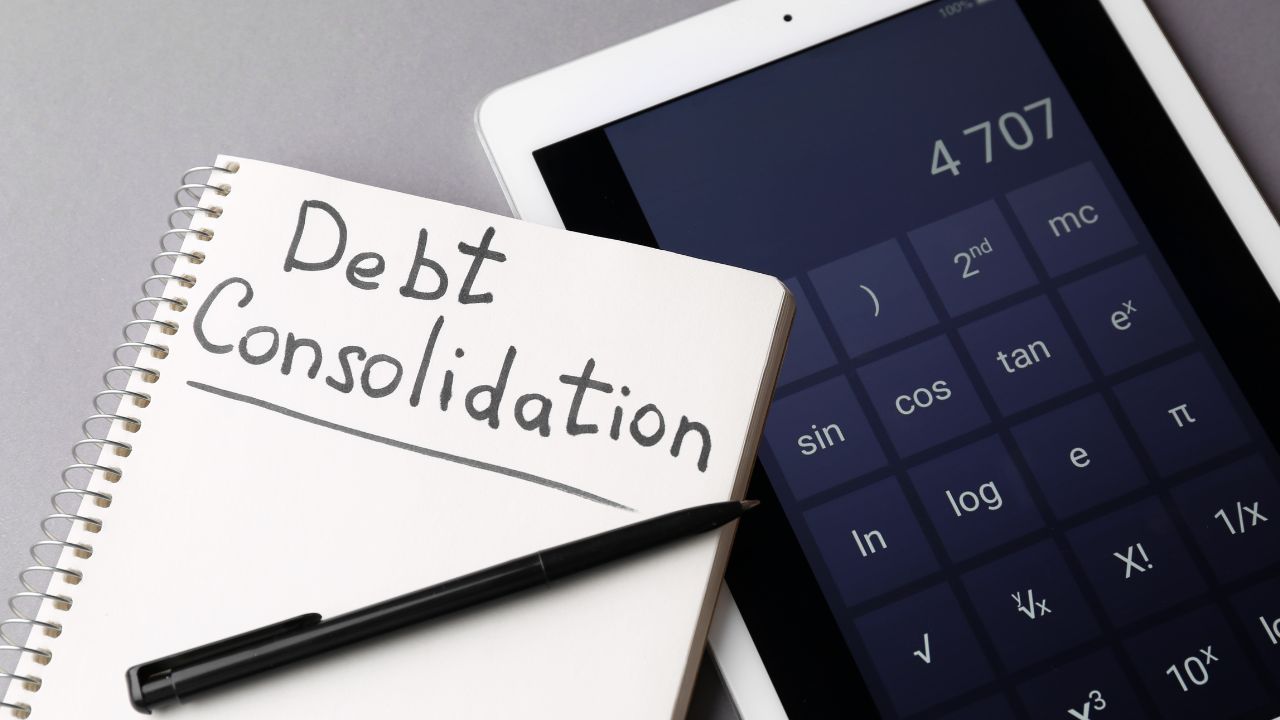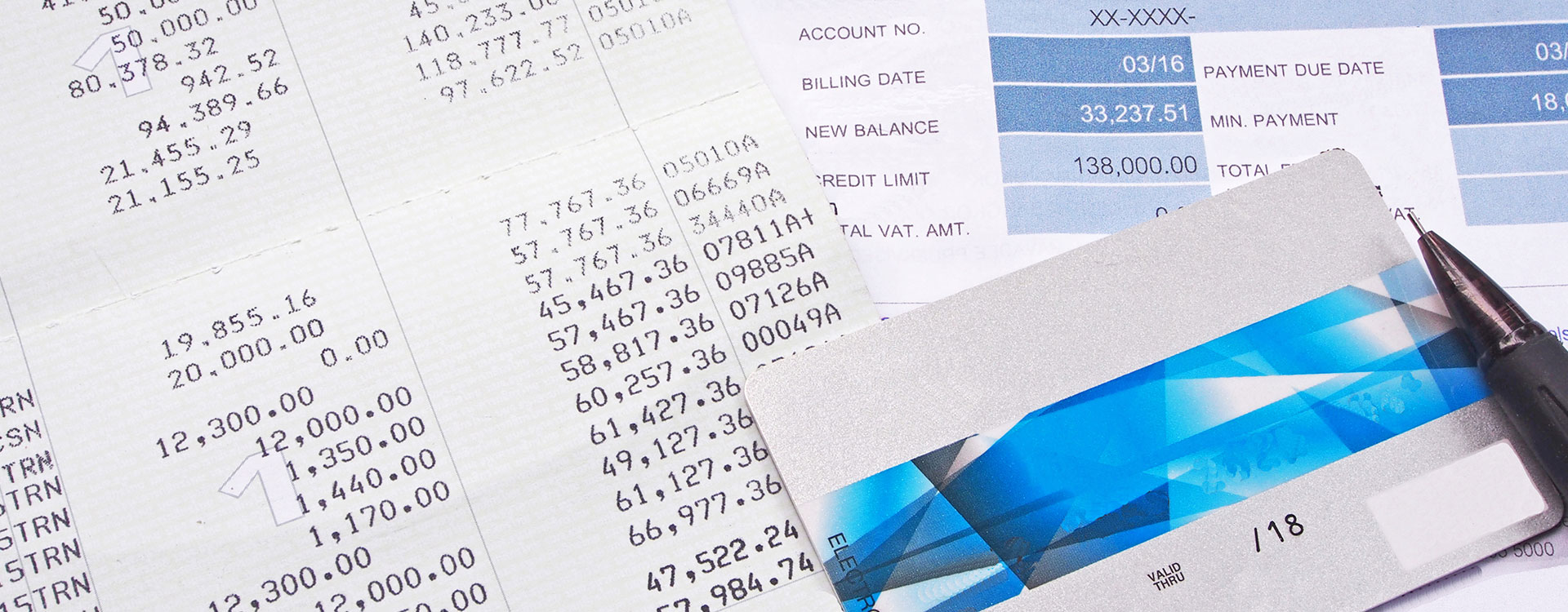The steps to get a debt consolidation loan include checking your credit, comparing loan options and applying for a loan.
If you're burdened with multiple high-interest debt accounts, a debt consolidation loan can truly be a game-changer. It allows you to combine your debts into one manageable installment loan with a single monthly payment.
KEY TAKEAWAYS:
- The first and most important step to get a consolidation loan is to assess your financial situation and evaluate whether such a loan is the right option for you.
- Other steps include checking your credit, comparing debt consolidation loans, applying for a loan, and closing on the loan.
- If you are denied a debt consolidation loan, there are steps you can take that could help improve your chances of getting approved in the future.
Step 1: Assess Your Financial Situation
Before diving into the loan application process, it’s important to evaluate your financial status and determine if a debt consolidation loan is the right choice for you. Consider the following factors:
Saving Money:
If you have substantial high-interest debt, such as credit card balances or payday loans, consolidating them into a loan with a lower Annual Percentage Rate (APR) can significantly reduce the total amount you pay over time.
On average, credit cards have an average interest rate of 20%, while personal loans offer an average rate of 11% since June of 2023. Even if you have bad credit, a debt consolidation loan may still be a viable option.
You can utilize an online credit card payoff calculator to analyze potential savings.
Structured Repayment:
Unlike revolving credit, such as credit cards, which offer no end date, personal loans come with a fixed repayment term typically ranging from two to five years. This structure makes budgeting and managing payments more straightforward.
Accelerated Debt Payoff:
If you have more disposable income, then opting for a shorter loan term allows you to expedite your debt repayment and become debt-free sooner.
Lower Monthly Payments:
By extending the loan term, you can reduce your monthly payment, but keep in mind that this may result in higher interest charges over time.
On the other side of the coin, a debt consolidation loan may not be the best choice for everyone depending on their financial circumstances.
Consider the following scenarios:
Higher Interest Rates:
If your credit score is below average, you may not qualify for a lower interest rate than what you currently pay. In such cases, it might be wise to work on improving your credit score before applying for a personal loan.
Increased Debt:
Consolidating your debts provides an opportunity to eliminate credit card balances by transferring them to a single installment loan. But be cautious, as running up new charges on your credit cards can lead to more debt than before.
Minimal Debt Balance:
If you can repay your existing debts within a year, the savings from a debt consolidation loan might be too insignificant to justify the effort.
Step 2: Check Your Credit
Obtain copies of your credit reports and review them for accuracy. Understanding your credit scores is equally important, as lenders assess credit reports and scores to determine loan approval and interest rates.
Familiarize yourself with credit scoring ranges and what constitutes a good score. Good or excellent credit increases your chances of securing a personal loan with a low APR.
However, even with fair to poor credit, there are loans available tailored to individuals with less established credit or lower credit scores.
It’s important to pay close attention to interest rates when applying with lower credit scores.
Step 3: Compare Debt Consolidation Loans
Take the time to shop around and compare multiple loan offers to ensure you secure the best possible terms for your debt consolidation loan. Consider the following tips:
Seek Favorable Terms:
As the purpose of a debt consolidation loan is to save money, make sure the new interest rate is lower than your existing rates.
Explore all available borrowing options and compare different lenders, including your own bank, other banks, credit unions, and Credit9 for our consolidation loan options.
Analyze Lifetime Costs:
Calculate the total interest savings resulting from a debt consolidation loan.
For example, if you have $5,000 in credit card debt with an average APR of 25% and consolidate it into a new loan with an average APR of 17% over 36 months, you could save around $739 in interest. With a better rate loan, you could save even more!
Beware of Extra Fees:
Some loans come with origination fees or prepayment penalties that can significantly impact the total cost of your loan.
Origination fees typically range from 1% to 8% of the loan amount. And if you plan to pay off your consolidation loan early, ensure it does not include a prepayment penalty, which could cost up to 2% of your outstanding balance.
Step 4: Apply For A Debt Consolidation Loan
Once you've selected the best loan offer, it's time to begin the application process. You'll typically need to provide personal, employment, and income information, as well as your reason for borrowing.
Your lender may also request supporting documents, such as a government-issued identification card, pay stubs, bank statements, and proof of residence.
Expect a hard inquiry on your credit file, and be prepared for the lender to review your debt-to-income ratio (DTI).
Although lenders generally prefer DTI ratios below 36%, many approve debt consolidation loans for applicants with higher debt loads.
Step 5: Close The Debt Consolidation Loan
Upon loan approval, the lender will fund your loan in one of two ways:
Disbursing Funds to Creditors:
The lender may distribute the loan proceeds directly to your creditors to pay off your old debt accounts. It's crucial to continue making payments on these accounts until your creditors confirm that they are paid off and closed.
Directing Funds to You:
Alternatively, the lender may deposit the funds into your bank account, allowing you to pay off your creditors independently. In this case, ensure you promptly use the loan funds to settle your debts and avoid additional interest charges.
Once your new loan is set up, focus on managing your debt and making consistent on-time payments to establish a positive payment history.
What To Do If Your Debt Consolidation Loan Application Is Denied?
Loan denials can occur for various reasons. If your debt consolidation loan is denied, expect to receive an adverse action letter by mail within seven to ten business days.
By law, you’re entitled to a free copy of your credit report, which can help identify areas for credit improvement. Understanding the reasons behind the denial will guide your next steps.
Request a Lower Loan Amount:
Lenders sometimes deny loans based on the perceived risk associated with the requested amount. Calculate if a smaller loan could still yield significant savings, as reducing the borrowing amount may increase your chances of approval.
Consider Alternative Lenders:
Certain personal loan providers use non-traditional data, such as educational and employment information, to evaluate loan applications.
Explore a Debt Management Plan (DMP):
If managing your debts becomes overwhelming, working with a credit counseling organization can help lower your interest rates and monthly payments.
A credit counselor can assist in creating a debt management plan (DMP) tailored to your situation. With a DMP, you make payments directly to the credit counseling organization, who then disburses the funds to your creditors according to the agreed-upon plan.
If you have poor credit and struggle to secure a loan from conventional lenders, these alternative options may provide a solution
Take Charge Of Your Debt Management Solution Today
By following the steps above, you can navigate the process of obtaining a debt consolidation loan effectively.
Remember, debt consolidation is not a one-size-fits-all solution, and it's essential to weigh the pros and cons based on your unique financial circumstances.
With careful evaluation and proactive measures, a debt consolidation loan can help you regain control of your finances and pave the way to a debt-free future.
How Credit9 Can Help You
At Credit9, we offer loan options that could provide you with the financial solution that works best for you.
Since 2018, Credit9 has provided over $460 Million in loans to over 36,000 of our customers, and we’re confident we can help you too.
For more information about Credit9’s unique debt consolidation services, contact us today to see how we can help you consolidate your debts and receive a free, no-obligation, and fully-customized Credit9 loan solution!
Debt Consolidation Loan





 Clear Language Establishes Trust And Minimizes Anxiety When It Comes To Finances
Clear Language Establishes Trust And Minimizes Anxiety When It Comes To Finances
 The Best Ways To Loan Money To Friends And Family
The Best Ways To Loan Money To Friends And Family
 Why October FAFSA Deadline Could Help Students Make Smarter Choices About Paying For College
Why October FAFSA Deadline Could Help Students Make Smarter Choices About Paying For College